Got a Text About an Unpaid Toll? It Could Be a Scam — Here’s How to Tell
A new scam is making the rounds via text messages, not emails. These messages claim you owe money to your state’s DMV or toll agency. They’ll even use your state’s name, quote rules, and say your license could be suspended.
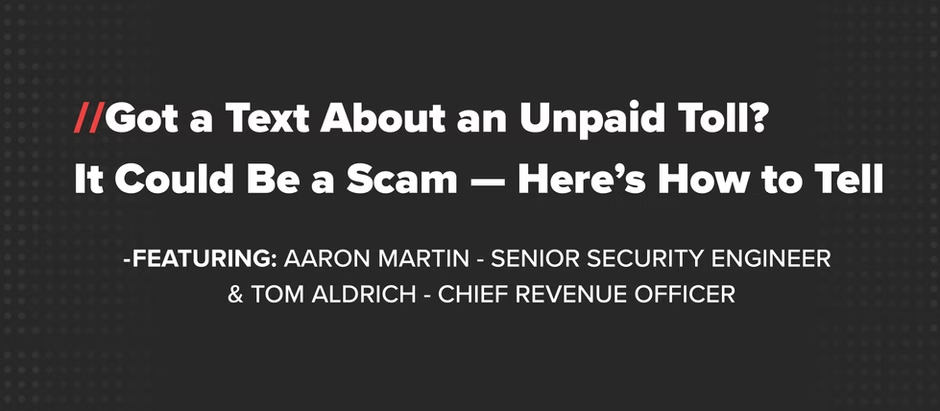
By Aaron Martin
You’re enjoying your day when a text pops up: “Final Notice from the DMV: Pay your unpaid toll to avoid license suspension.”
Sounds urgent, sounds scary — and it’s exactly what scammers want.
What’s Going On?
A new scam is making the rounds via text messages, not emails. These messages claim you owe money to your state’s DMV or toll agency. They’ll even use your state’s name, quote rules, and say your license could be suspended.
But it’s all fake.
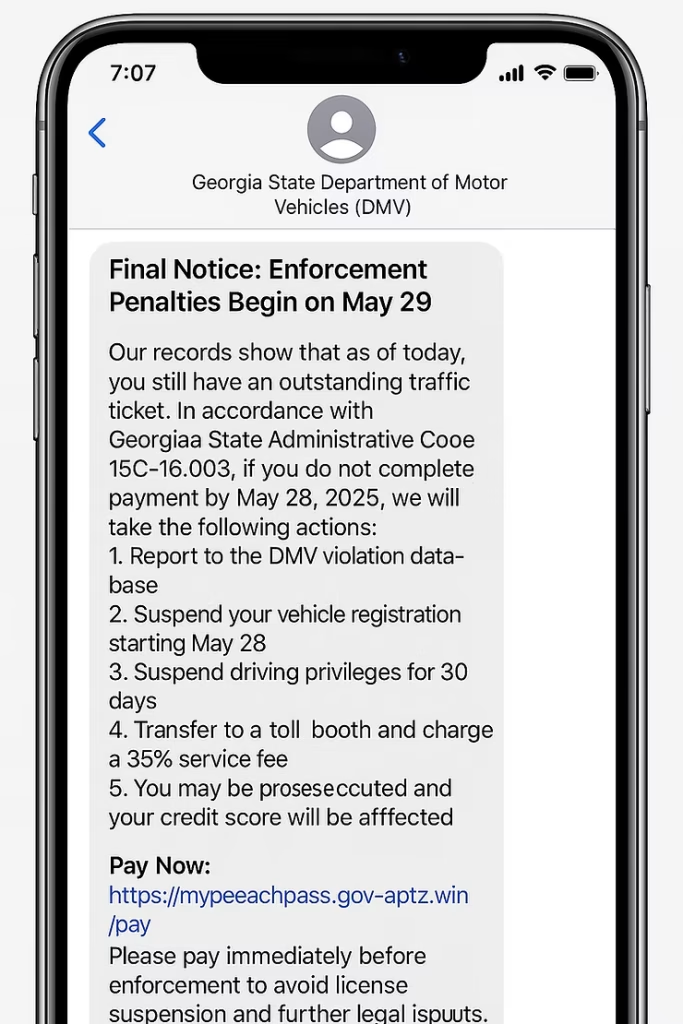
Screenshot of fake toll notice phishing text message impersonating the DMV
How the Scam Works
- The link in the message leads to a site that looks real — sometimes nearly identical to the actual DMV or toll agency.
- It asks for your name, address, and credit card info.
- After you hit “submit,” the site shows a loading screen pretending to verify your payment. But what it’s really doing is stealing your info.
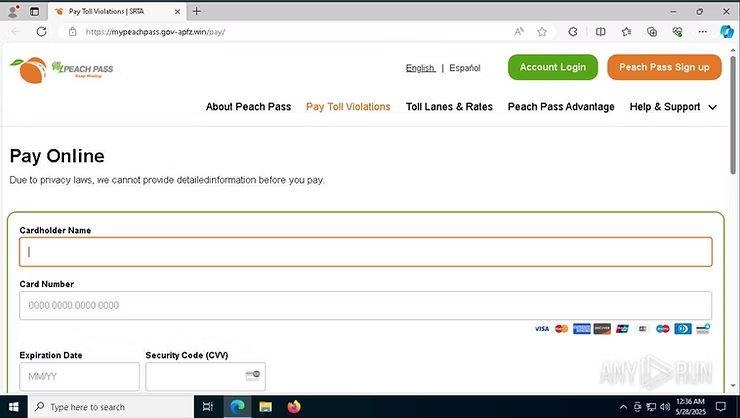
Screenshot of fake toll phishing form
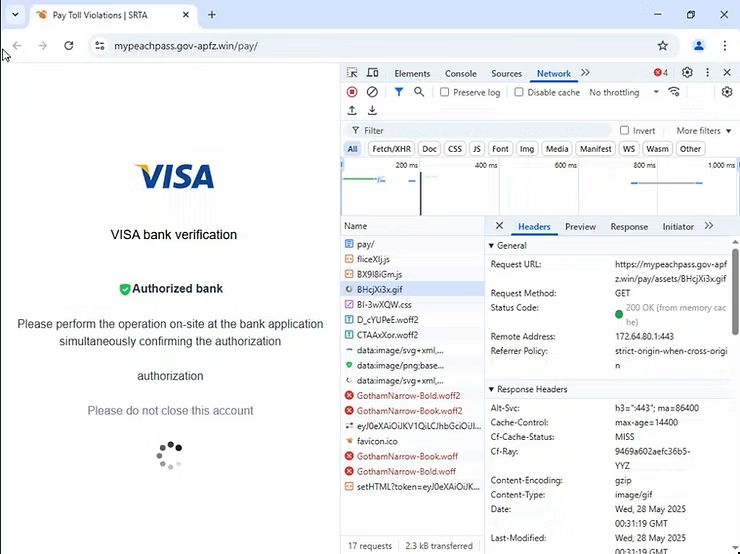
Screenshot of fake toll phishing payment verification
Red Flags to Watch For
- A state agency will never text you to demand immediate payment.
- The web link may look official, but it’s just a trick: look closely at the URL.
- They use fear — threats of court, fines, and license suspension — to pressure you.
How to Protect Yourself
- Never click on links from unknown texts — go directly to the official DMV or toll site.
- Watch out for misspellings or odd URLs.
- Use credit monitoring and card alerts.
- Ask a trusted advisor or tech expert to verify anything suspicious.
- Consider signing up for fraud alert services or identity theft protection tools.
- Report it by forwarding to 7726 (SPAM) — a number used by most mobile carriers in the US.
Why It Matters
We’re seeing a big rise in this kind of phishing — it’s one of the most common SMS scams right now. Even tech-savvy people fall for it because of how real it looks.
The Numbers Don’t Lie
Smishing — phishing via text message — is one of the fastest-growing cybercrime tactics. The FBI’s Internet Crime Complaint Center (IC3) reported over $80 million in losses due to smishing attacks in 2023, a sharp rise from the year before. With more people relying on mobile devices and trusting text messages from unfamiliar numbers, these scams are becoming more dangerous and common.
Don’t let a fake $3.30 fine cost you your identity.
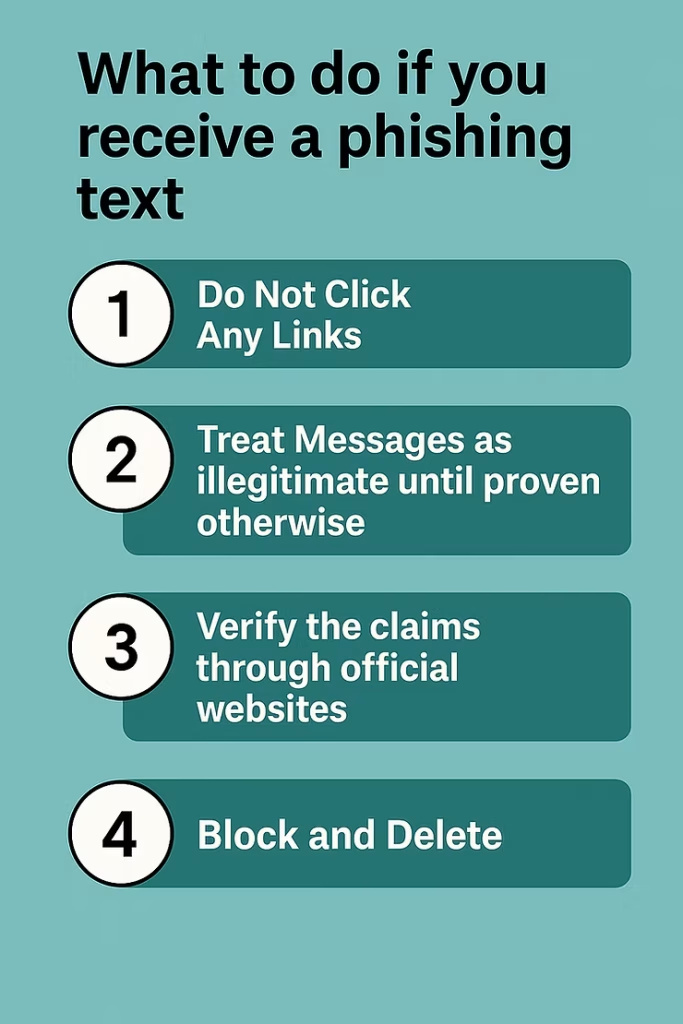
Screenshot of a phishing infographic
Protecting Your Privacy Starts Here
About 360 Privacy At 360 Privacy, we help high-profile individuals and families stay ahead of emerging scams like these — from phishing texts to digital impersonation threats. If you’re serious about keeping your identity and reputation secure, get in touch with our team or explore how we work.
Your digital security is only as strong as your awareness.— Learn more at 360privacy.io

